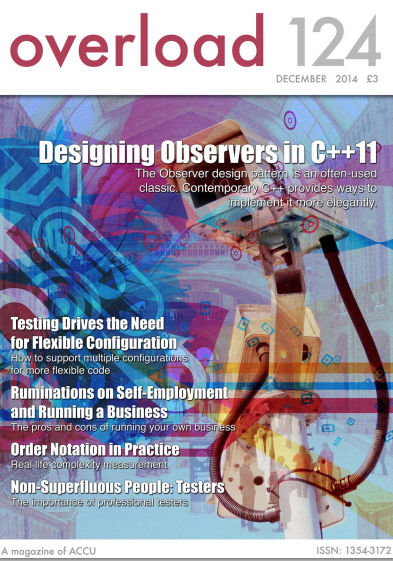Start a Thread with std::async - Bartosz Milewski

std::async in modern C++.
Start a Thread with std::async
by Bartosz Milewski
In this video excerpt from Introduction to C++ Concurrency LiveLessons (Video Training), Bartosz Milewski shows you how to start a thread with std::async.



 Overload 124 is now available. It contains the following C++-related articles, and more:
Overload 124 is now available. It contains the following C++-related articles, and more: The January C/
The January C/